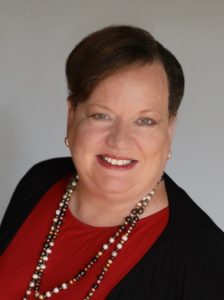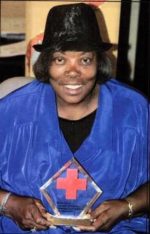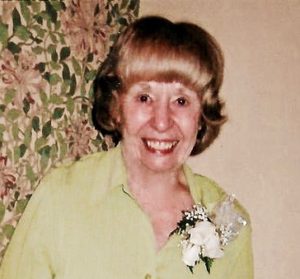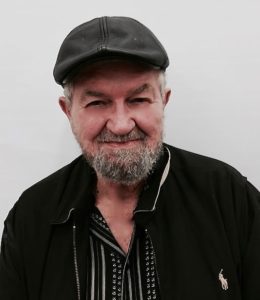News Posts List
Recovery Reporter 2019 Spring
04/25/2019
Recovery Reporter 2019 Spring

- Welcome to Spring
- News from Headquarters - First Impressions Last - 2019 Annual Meeting
- May is Mental Health Awareness Month - Practice simple self care
- Stories of Hope - "Follow your Vision and Never Give Up" by Barbara S.
- Stories of Hope Audio interviews on SoundCloud - Special guest member Joanne Lampey RI President
- Wisdom of Dr. Low - Simple Rules
- Recovery Examples
- Roaming the Globe - Featuring Canada
- Members Corner - In recognition of long-time members - thank you!
- In Memoriam - Jim Lykins, Chuck Blair, Ken Freitas and Pat Cooley
Welcome to Spring!

Spring is a time for rebirth. It’s when the winter snows disappear, the flowers pop up through the newly green earth, and the song birds return from their southern adventures.
“The simple method is best.” Dr. Low
Simple things can welcome a new beginning. With all that is in bloom around us, it’s a great opportunity to slow down and appreciate the beauty – and maybe take this time to reflect on how that affects us – our inner environment, our surroundings.
Perhaps the changes we see outdoors will stir a sense of taking the time to refresh our priorities, regain more energy – or something else entirely that could add more calm and peace in our lives.
Everything changes. We celebrate the rebirth of a new passage as we renew our commitment to a brand-new season and invite you to come join us in continuing our promise to better mental health for all.
Help others come see what they may be missing! If we are going to focus on teaching the RI practice to newcomers, where do we begin? As Dr. Low stated, “The simple method is best.” What could be simpler than the spots? Why not just start with the spots? We asked a newcomer which spots they use the most, here are some of their favorites: “It’s the outer environment, bear discomfort until you gain comfort, if you can’t change the situation you can change your attitude about it, calm begets calm, temper begets temper.”
ARCHIVAL MATERIALS
Sweepstakes winners and everyone else interested in Dr. Low’s original publications, we are bringing you a special bonus to accompany these amazing original archives:
* Group Psychotherapy – Recovery’s original textbook
* Four case studies by Dr. Low
We are still in the process of putting it together for you! The wait won’t be a disappointment.
Your editors thank you for being the patient patient! (Please click this link editor@recoveryinternational.org to be added to the list, if
you are not already on it.)
Happy Spring from Helen and Dave
News from Headquarters

First Impressions Last
Remember your first RI meeting? What was it that made you come back for a second meeting?
One thing I hear time and time again is that the primary reason many people return for a second meeting is how welcoming and helpful the Group Leader was!
As we all continue to work hard to spread the word about RI and bring new people to the meetings, we need your help to engage newcomers and show them that the method works, and also help them realize it takes time, patience, and practice.
First meetings can be confusing, and newcomers are likely to ask a lot of questions or cross talk since they don’t know the protocol yet. Leaders and other meeting attendees can play a big role in whether a newcomer returns for the next meeting. Having handouts ready, coaching newcomers on the structure, giving short examples, inviting newcomers to spot on examples (without pressure) deferring questions until the Mutual Aid time—all these are ways that the newcomer learns the method and learns how meetings are run.
And—don’t forget to endorse!
.jpg)
Sandra K. Wilcoxon, CEO
 this May!
this May!
2019 Annual meeting – Brooklyn, New York
Join us!
ANNUAL MEETING
Saturday, May 18, 2019
Brooklyn, NY

Lunch event is sold out!
Please join us by conference call:
1:00 p.m. Eastern Daylight Savings Time
Dial in: 1-605-475-2090
Participant Access Code: 161152
Roll Call of States * Look Back at 2018 * Look Forward to Change
May is Mental Health Awareness Month


Celebrate Mental Health Awareness month with some self-care! Mental Health Awareness Month, observed at this time each year since 1949, was established by Mental Health America.
Simple Self-Care – Check in with yourself
Taking good care of yourself is paramount to the success of your recovery process. People in recovery find that their physical, mental, and emotional health are all connected, and that supporting one supports the others. Taking care of all aspects of yourself will increase the likelihood that you stay well.
Some suggestions for self-care include:
- Live Healthy – eat healthy foods, get enough sleep, exercise regularly.
- See friends to build your sense of belonging. Connect with RI members for support. Take that member up on their offer of a 5-minute phone call!
- Tell others you are available for a 5-minute call – you’d be surprised at how receiving calls strengthens your practice as much as making them.
- Try to give yourself vitalizing experiences every day. Listen to music, invite someone to go to a movie (or go alone), make some art, bake, or work on a craft that you enjoy.
- Find ways to relax, like taking a bath or go for a walk in the woods, beach, or around the neighborhood.
- What are your vitalizing experiences? Make a list – and check them off!
- Practice motionless sitting – see Manage Your Fears, Manage Your Anger, p.252-3

or practice these simple chair movements click here
The support we receive from the RI family is invaluable. Let’s celebrate Mental Health Month, this May and every day!
Stories of Hope


Click here to purchase Barbara’s book!
Barbara S., was an assistant leader in Sacramento, California before moving to Livermore in the San Francisco Bay Area (Area 20). She started and has been leading the Livermore group since March 2017.
“I grew up in Smith Hill, LA in a home without indoor plumbing. My father was a logger. Over the years I lived in Louisiana, Mississippi, and California. After graduating from high school I got hit by a train and lost one leg. In spite of physical difficulties and suffering from bouts of depression I got two associates degrees and a degree in sociology and social services from California State University Hayward.
I was diagnosed with bipolar disorder. Eleven years ago, while I was seeing a psychiatrist in Sacramento, my son saw flyers for RI in the office and told me that it seemed interesting and that I should go. At the meetings, when I heard the examples, it encouraged me. I never missed a meeting. It was a long while before I started giving examples, but I was learning from the examples of the other members.
The first spot that I used often was, “Calm begets calm and temper begets temper.” Then, when I had to go somewhere I had never been before like on a cruise, I used, “Nervous symptoms are distressing but not dangerous.” I also learned to say, “Have the courage to make a mistake,” rather than beating myself up because I had made a mistake.
I suffer with fear. I learned to say, “Fear is a belief, and beliefs can be changed. So that helped me get rid of some of the negative thoughts that I was having. When I have a lot of things to do, I use the spot, “Decide, plan and act.” That helps me to calm down the racing thoughts and stabilize myself.”
Stories of Hope Audio series

An interview with special guest, RI Board of Directors President, Joanne Lampey
“In the mental health arena, there’s no continuum of programs like the RI practice. There’s simply no comparison out there to what RI has to offer.” Joanne Lampey
Joanne Lampey, RI’s beloved President, looks back from lived experience as a young mom in serious trouble with debilitating anxiety and depression, and how these symptoms were lifted with a dedicated RI practice. Joanne contributes her success to RI’s members, “The greatest volunteers on the planet.”
Click here to hear Joanne’s exclusive interview on the RI SoundCloud page
If you know someone who could benefit from the RI Method or a professional who might recommend us to clients, please copy this link into an email and send it to them: https://soundcloud.com/recovery-international/
Wisdom of Dr. Low – Simple Rules
 Simple Rules, from Mental Health Through Will Training, p365
Simple Rules, from Mental Health Through Will Training, p365
“Do you realize that you expect to be cured of your fears by means of complex but easy and sometimes glib explanations instead of by means of simple but exacting directions? You want to be studied and analyzed and discussed, but you do not want to be told what to do and how to act.
“What will the most lucid explanations profit you if you are seized with a deep anxiety or a paralyzing panic? In a condition of this kind, you are utterly unable to make use of the ingenious and fascinating explanations you may have been given. If in a panic you try to remember what you learned and to reason out what is the sensible thing to do, your mind will fail you disastrously.
“The panic weakens your memory and blots out your reasoning power. All you will be able to do in a commotion of this sort is to apply simple rules. Their very simplicity renders them capable of being employed in a situation in which complex thought is impossible.”
Check us out! Books can be purchased at the Recovery International Store
Recovery examples
Lower your expectations
I had an experience recently of how much recovery tools and spotting have helped me.
My elderly mother had to try a new medication for blood pressure. I helped her with knowing the side effects, dosage, etc. on the day she started it.
The next day I felt I “should “ visit her again. I didn’t want to go. I started to work it up, over-thinking about the ”right" action to take.
I spotted that I needed to lower my expectations for myself and that I was in lowered feelings. I called her instead and told her that I would come over the following day.
Before Recovery I would have spent more time in lowered feelings.
I endorsed for spotting and using recovery tools.
Maureen B., Group Treasurer, Myrtle Beach, SC Area 38
-----
Great improvement over former days
I’m not sure what to do when I’m trying to focus on my study and there are some distractions.
My symptom is confusion.
I have fearful temper – feelings of inadequacy. I used spots like: calm begets calm, temper begets temper; there’s no danger; it’s phasic not basic; trust your basic function; it’s the outer environment. I endorse for using recovery
Before my recovery training I was in symptoms. I can reduce my symptoms after using recovery.
Stephanie
(Click here to listen to Stephanie’s interview on the RI SoundCloud page)
Click on the icons below for more examples and stories from RI members.
 |
 |
 |
||
| Chat room | Meetings | SoundCloud |
If you have questions, email info@recoveryinternational.org.
Roaming the Globe
![]()
Cultural diversity across the world has significant impacts on the many aspects of mental health, ranging from the ways in which health and illness are perceived, health seeking behavior, and stigma about the discussion of mental health. Recovery International transcends these distinctions. Dr. Low’s practice is a common language – in ANY language.
CANADA

Hello, my name is Kevin and I am a Yonsei (fourth generation Japanese-Canadian) and also a leader of a meeting group in Recovery Canada. I thought that since this month is not just Asian Heritage month but also mental health awareness month I thought that I would write an article about mental health in the Japanese-Canadian community.
As you may have heard, mental health is a topic that is starting to be talked about in the West, but in Japanese culture or in East Asian cultures, in general, it is still particularly a difficult topic to talk about.
The thing is, mental health issues are not just Japanese or Asian issues, they are worldwide. Even the issue of Japanese being isolated with technology is a phenomenon that is happening here as well. You see it every day on public transit. People are on their phones – connected online, but disconnected offline. We even have people here that are isolating themselves similar to what is known in Japan as hikikomori, where individuals stay home and play video games or computer games and do not leave their homes except on rare occasions for months at a time or even years. The government definition of hikikomori is someone who has not left their room for six months. A contributing factor to this phenomenon is due to the fact that, contrary to western culture, openly expressing feelings is not common and as a result many Japanese internalize it. With the advancement of technology and the increasingly growing number of people feeling isolated in the West, more Westerners are displaying hikikomori-like symptoms. It is for these reasons that I believe it is important for the Japanese-Canadian community to speak up about mental health. If we keep ignoring these issues, the problem will only get worse.
Recovery Canada has several different branches in different areas. I help run one of our groups in Burnaby. As a group leader in Burnaby, I notice that quite a few Asians including a few Japanese-Canadians and Japanese nationals have come to my meetings and I visit some of the other meetings and meet Japanese there as well.
It may not be easy, but I believe that all of us, regardless of personal heritage, can overcome these challenges if we continue to do our best spreading the word, and practice the RI method on a regular basis.

“A Mental Health Morning,” is a breakfast supporting mental health and addiction care at St. Joseph’s healthcare Hamilton. The event features the Spirit of Hope awards, as well as a mental health advocate guest speaker. The breakfast set a record with 600 people attending to hear keynote speaker Margaret Trudeau in 2018.


(L) – Margaret B. and Joyce O., Spirit of Hope winner for organization
(R) Keynote speaker Margaret Trudeau, Joyce O., Chelsea M. and Cierrah W.
 San Diego, CA – Area 25
San Diego, CA – Area 25


Recovery International San Diego Area 25 was recently awarded the distinction of Recognized Partner of San Diego County’s Live Well San Diego program. The vision of Live Well San Diegoselects a region that is building better health, living safely & thriving. It aligns the efforts of individuals, organizations and government, to help all 3.3 million San Diego County residents live well. Other organizations that have been awarded the distinction of Recognized Partner of Live Well San Diego are: NAMI San Diego, American Academy of Pediatrics-California, Meals on Wheels, San Diego County Medical Society, American Cancer Society, Special Olympics Southern California, San Diego Region, Alzheimer’s San Diego, and the U.S.-Mexico Border Health Commission.
Alfredo Aguirre, Director of Behavioral Health Services of San Diego County, presented RI area leader and Program Manager, Lisa Garcia, (pictured) with the signed proclamation from the San Diego County Board of Supervisors at a special event in RI San Diego’s new office.
------
Northwest – Area 150
A Recovery International tool game
A unique way to understand and use the tools and principles of RI has been developed at Oregon State Hospital. Those who are familiar with the game Apples to Apples would find this RI version easy to follow, as some of the same rules would apply.
The object of the game is to be the one at the end of a round of play to have selected the best the spotting tool, as determined by the spotter.
We deal each player six tool cards. One person, the “spotter,” selects a situation or event from another set of cards (and also has the option to describe briefly a situation or event of her/his own). We developed these situation/event cards from real-life events most of us handle every day.
The “spotter” reads the situation aloud. Each player chooses a tool from their set of cards. The “spotter” collects them and reads all of them aloud. The “spotter” then selects the tool he/she feels best fits the situation and explains why, thus gaining more insight into the tools used in RI. The player whose tool was selected receives a point and becomes the next “spotter.” Additional tool cards are dealt so that each player has 6 cards at the beginning of each round of play.
We like the game so much, and it is so helpful with exposure to RI tools, we decided to play it once a month.
David R., Salem, Oregon
South Central Ohio and Kentucky – Area 141
The first quarter of 2019 has been good to RI Area 141 (South Central Ohio and Kentucky). We have one new assistant group leader, Jason W., who lives in Dayton, originally from Southern CA. Newcomers grace Area RI meetings often and some long standing members return to say hi. Currently we are working on presenting a demo meeting at the Dayton Veterans Affairs Medical Center.
We are looking forward to sending two members of the area to Brooklyn, NY, for the 2019 Annual Meeting in May. Publicity for RI Area 141 is robust in Cincinnati, Dayton, Columbus and Louisville. Karl N., is exploring opening up a new group in Columbus Ohio. Sibley B., of greater Cincinnati, greets our meetup.com users, and is doing a great job keeping financial records for us. We applaud our long time group and assistant leaders for their service! Judy and Rick J., helped organize getting an RI table at the ‘Out of Darkness’ walk for suicide prevention in Dayton in 2018. Kudos to you all!
We endorse for doing things in part acts!
Happy Spring!
Note: Harrisburg, PA’s news is in Members Corner, celebrating Rick R.’s 41 years in RI.
![]()
Members Corner
Bear the Discomfort in order to gain Comfort
I read in the biography My Dear Ones that Dr. Low was not fond of modern, labor-saving devices. It said that he felt that they were making things too easy and taking the effort out of daily life. But why would we want effort? Isn’t freedom from hardship what gives us peace of mind? It seems to me that Dr. Low thought differently.
My reading of Dr. Low’s work leads me to believe that his research and practice revealed that maintaining a stable inner environment during hardship and effort are what actually lead to peace of mind. I haven’t read anywhere that Dr. Low wanted to get rid of technology or efficiency in our domestic life, but he suggested that before our “modern age” people had better tools for managing their state of mind during hardship. Did we forget these tools for self-management when modern conveniences and the culture of comfort took away opportunities to employ their use? If so, then we are fortunate that Dr. Low’s Method requires us to rebuild these skills.
As pre-modern challenges disappear, it is imperative that we adhere to diligent use of Dr. Low’s Method and apply it to the trivialities we encounter. With proper use of these tools comes a decrease in symptoms which can be maintained while advancing technology and efficiency render redundant the efforts required in earlier days.
Paul B.
In recognition of our long-time Members


Moorestown, New Jersey – area 155, is extremely fortunate. One of their very cherished leaders, John D., brought RI to the area over 40 years ago from Chicago, and he was actually taught by one of Dr. Low’s original patients! John started all of the meetings in the area. Everyone has learned so much from him and the meetings continue to grow. John is now 90 years young and has opened up yet another new meeting! He is a remarkable man!!! We are all so grateful to John for all his years of selfless service and first-hand knowledge. Thank you John!
Happy Birthday Harrisburg, PA – Area 155
 On January 8, 2019, the Recovery meeting in Harrisburg, PA., celebrated its 41st birthday!
On January 8, 2019, the Recovery meeting in Harrisburg, PA., celebrated its 41st birthday!
They made announcements in the local newspaper, and invited any and all who would care to join their wonderful group! There aren’t many meetings that have been around as long as the Harrisburg meeting, truly a treasure!
A special shout out to Rick R., who has been a member since May 1978 and is an original member of the group. He’s been the group leader for 11 years and was as assistant leader for 20 or more years when Bill Kelly brought the Recovery program to Central PA back in 1978. Rick is currently the group leader of the Hummelstown, PA., and continues to serve as group 155 team leader and secretary.
Congratulations, Rick R., thank you for your wonderful service!

Our beloved member of almost five decades, Nancy C., of Area 25, San Diego, CA., (pictured below) with Ted Lietner, San Diego Padres announcer.

Nancy has been in RI for 48 years! She has been an area leader, as well as having served on several training committees and program committees. Nancy is a dedicated mentor for RI newcomers; she is a loving and understanding mentor and has touched many members’ lives, solidifying the foundation of the RI method for many years to come. You are the BEST Nancy! ![]()
Congratulations long-time member Joyce Oliver from RI Canada

Tell us a bit about yourself and how you came to RI.
Over 40 years ago, my youngest daughter went into school full time and I was panicky about what I was going to do all day, housework? I did not enjoy that type of work. I worked up the panic and started to feel hopeless and helpless. Suicide thoughts came back to me again (I had a lot of them in 1959 and was hospitalized and had shock treatments.) My neighbor and good friend told me about RI and I went to a meeting at Centenary Church in Hamilton.
What meetings do you attend?
Wednesday nights at 8:00 and I was delighted to hear that these people had thoughts like me. I stayed with the group about a year and then I became an assistant at St. James United church in Burlington on Thursday nights at 8:00. I stayed there 15 years as a leader.
I assisted at St. Stephen’s Church in Burlington Monday afternoon at 1:00 and then became a leader.
Each time I moved, another person became the leader. I was in Burlington at St. Stephen’s for about 15 years.
I wanted to try something new so I gave the group over to another person and signed up as a telephone leader. My group is an assigned group Thursday nights at 7:30. I am still doing the group. I am 85 years young.
My Favorite tools are: Command your muscles, exceptionality is a hope a dream an illusion, Endorse!

Call for submissions!
Have you or someone you know dedicated 25 or more years to practicing the RI Method?
Help us honor our longtime members here in Members Corner! We are going to feature our long-serving heroes in each issue of the Reporter.
Send us:
- A photo
- What challenge/problem did RI solve for you?
- What are your favorite spots?
- Why would you recommend RI?
- Highlight the meeting you attended (City, day, time and any leadership roles taken on)
Send descriptions to: editor@recoveryinternational.org
Mailed items should be sent to Headquarters:
Recovery International
1415 W. 22nd St., Tower Floor
Oak Brook IL 60523
ALL Members! Please feel free to submit poems and musings celebrating how RI has made a difference in your everyday life to: editor@recoveryinternational.org
In Memoriam
Jim Lykins (1938 – 2018)

![]() Sadly, we lost one of our wonderful group leaders, Jim Lykins. Jim lived in Cincinnati and had two children. He passed away last November due to complications from a stroke. He was 80 years old. Jim led an RI group in Cincinnati for many years. Although his group was small at times, he went every week and was always willing to help other groups. A fellow member remarked how Jim was always willing to help with 5-minute phone calls whenever support was needed. Jim would often tell jokes and he will definitely be remembered for his great sense of humor along with his untiring dedication to RI and its members. As you can see by his photo, Jim had his “inner smile” down! He will be sorely missed.
Sadly, we lost one of our wonderful group leaders, Jim Lykins. Jim lived in Cincinnati and had two children. He passed away last November due to complications from a stroke. He was 80 years old. Jim led an RI group in Cincinnati for many years. Although his group was small at times, he went every week and was always willing to help other groups. A fellow member remarked how Jim was always willing to help with 5-minute phone calls whenever support was needed. Jim would often tell jokes and he will definitely be remembered for his great sense of humor along with his untiring dedication to RI and its members. As you can see by his photo, Jim had his “inner smile” down! He will be sorely missed.
Charles “Chuck” Blair (1957 – 2019)

On March 14, 2019, former Dayton, OH area RI Assistant Leader, Charles “Chuck” Blair, passed away after a few years of battling cancer. He was an Army veteran, having served in Panama years ago.

Chuck loved hiking, his dogs, his motorcycles, his fine cigars and his pick up truck! We miss you, your laughs and funny stories about Reds Baseball and amateur radio. Rest easy Chuck, we’re remembering all the great memories,
Your friends from RI.
Please send donations to Recovery International.
Ken Freitas (1938 – 2019) Area 20

Ken was longtime resident of Hayward California, he passed away February 8, 2019, of natural causes in his home. He was born in Oakland, attended grammar school at St. Louis Bertrand and graduated from Bishop O’Dowd High School where he enjoyed playing sports, including varsity baseball. He also attended Laney College. He served in the Armed Forces and was stationed overseas. Ken had a long career as a Sheet Metal Worker. In 1964, he married Frances Marie Finigan (“Sunny”). They had two lovely daughters, Karen and Kristine. Ken was a big sports fan and a dedicated fan of the Oakland A’s and the Golden State Warriors. Ken’s sanctuary was his garage where he worked on sheet metal and wood projects. He delighted in helping his daughters with their many home improvement projects.
Both Ken and Fran were active parishioners at St. Joachim’s church. Ken kept active with numerous volunteer activities, including for St. Joachim’s: St. Vincent de Paul Society, (TOPS) Take Off Pounds Sensibly, and with Recovery International — where he led self-help groups for people with nervous symptoms. He will be greatly missed.
Patrick E. Cooley (1943 – 2019) Area 20

As a young adult Pat Cooley developed symptoms of paranoid schizophrenia. In spite of his problems he was able to serve in the infantry in Vietnam, and soon after hold a good job at the Port of Oakland until he retired. His psychiatrist said that he was the only person with paranoid schizophrenia he knew who held a job for 26 years.
Pat said that once he thought he was having a heart attack and went to the ER. While there he realized that no one in his family had ever had heart trouble, and then his symptoms disappeared. When he first came to RI in 1992 he read about how people think that they are having heart troubles but that it is just a nervous symptom. At that point, he knew RI was for him.
Pat attended meetings in San Leandro and Oakland meetings and through practicing, was able to get rid of his paranoia. When he had a paranoid thought he would spot, “All I know is that I don’t know.” He said that once his rental car got towed. What upset him was not the towing itself, but that he had left his Recovery books inside.
Pat continued to come to RI meetings until shortly before his passing. We have fond memories of his dedication, his ready laugh and his self- endorsement for great improvement over former days.
(Click here to listen to Pat’s interview on the RI SoundCloud page)
Recovery Reporter Editors:
David W, Editor in Chief
Helen P, Managing Editor
Submission guidelines:
We would like thank all of our contributors, without whom the Recovery Reporter would not be possible. Before sending submissions, please read the following submission guidelines from your temperamental editors!
- Please keep submissions as short as possible, roughly 3 paragraphs in length, which is approximately 300 words.
- Please identify all submissions with first name and last name initial only, area number (if you know it), town, and state or country.
- Photos: Please if possible submit clear, black and white photos whenever possible.
- Please no bold or italics.
- Please adhere to the deadlines for each issue.
- When the volume of submissions exceeds our page limits, it may be unfortunately necessary to exclude some submissions.
- Please send only submissions pertinent to the Recovery Reporter
PRIVACY: To protect the privacy and confidentiality of all members, please use only first name and the initial of the last name of people. Please be aware that the content you submit is NOT private because we cannot control how it is shared and therefore it may be accessible to the public.
Send questions, comments, examples and other news for the next Reporter to editor@recoveryinternational.org.
The views and opinions expressed by authors of articles appearing in the Reporter are those of the author of those articles and they are not necessarily the views and opinions of Recovery International or anyone affiliated with Recovery International.
Reminder
If your email or address changes please be sure to notify us. If you are a Canadian member you should also notify Cindy Hutchins at purple74@xplornet.com.
If you, or someone you know, is a paid member and isn’t receiving the Reporter, please let us know at info@recoveryinternational.org
